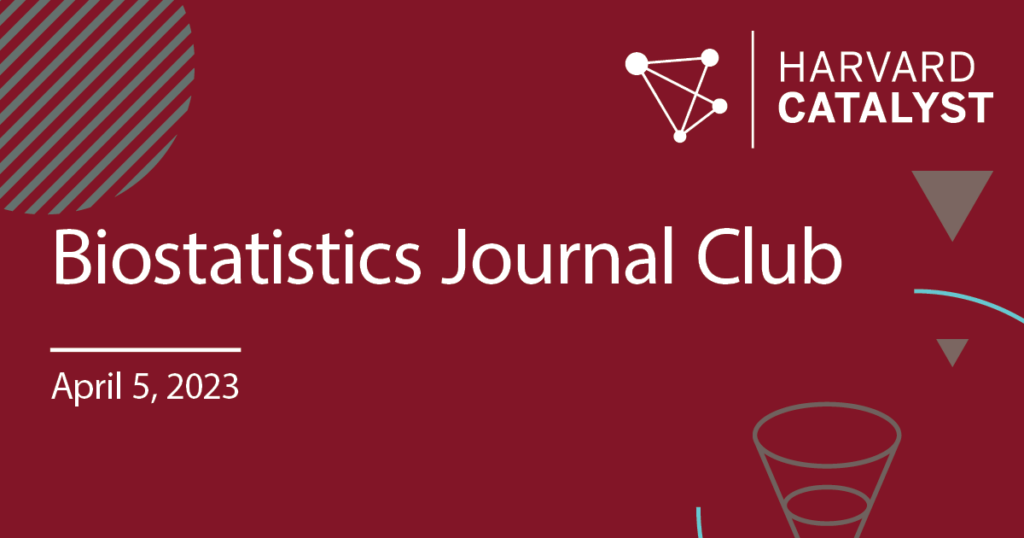
Biostatistics Journal Club: When estimating causal effects in randomized clinical trials, start by defining causal estimands — not estimatorsWednesday, April 5, 20231:00pm-2:00pmRegister hereMarie-Abèle Bind, PhD, Massachusetts General Hospital, will lead a discussion on her current research and share findings with participants.Consider a study whose goal is to estimate causal effects, with measures of estimated uncertainty. In the standard statistical literature, whether applied or methodological, frequentist or Bayesian, parametric or nonparametric, the focus remains on estimators at the expense of the explicit consideration of causal estimands. Authors argue that valid causal estimands must first be precisely defined as functions of potential outcomes, and only subsequently the focus turns to estimators. This point is illustrated in the context of a randomized clinical trial (RCT) on amyotrophic lateral sclerosis (ALS). In ALS RCTs estimating the effect of an active treatment vs. a placebo on a non-survival outcome (e.g., amyotrophic lateral sclerosis functional rating scale revised), it is common to encounter the issue of censoring due to death, that is, some participants die before the end of the study. In this setting, whereas valid causal estimands (e.g., always-survivor causal effect at the end of a study) are evaluable and have been previously described, the ALS literature essentially focuses on estimators that lack a causal interpretation. Authors advocate for alternative estimators of treatment effects that are valid causal estimands.



